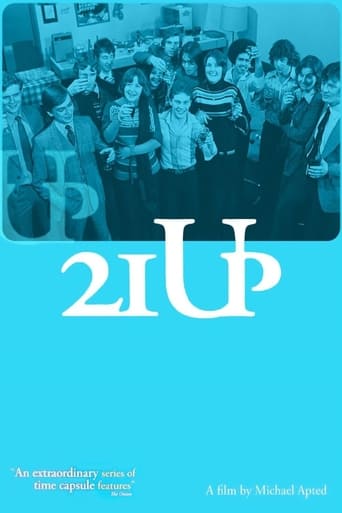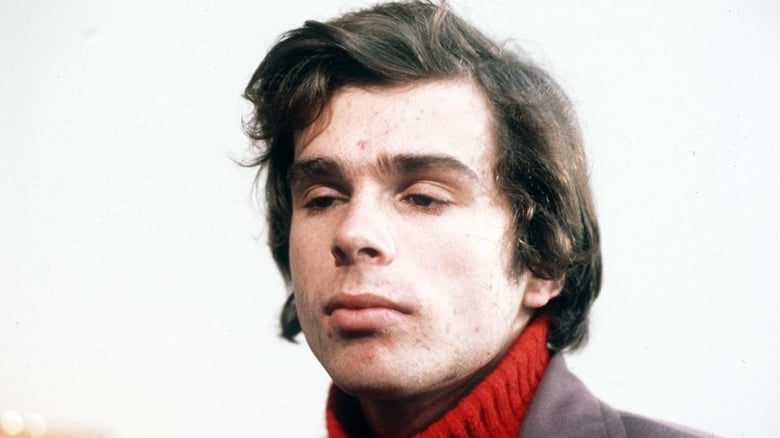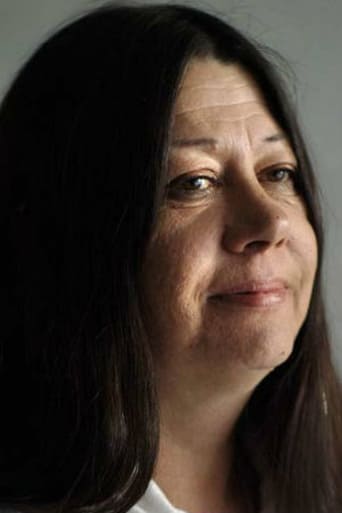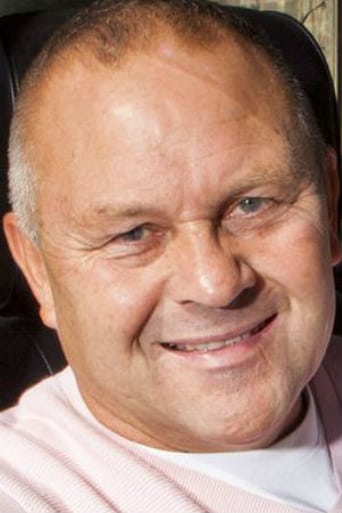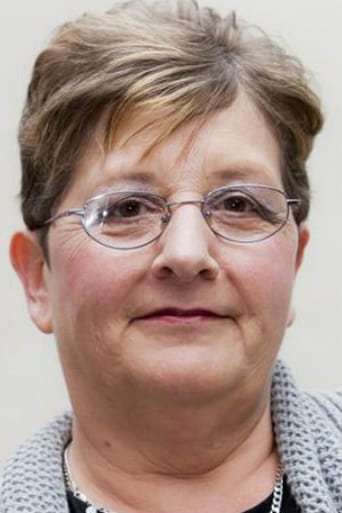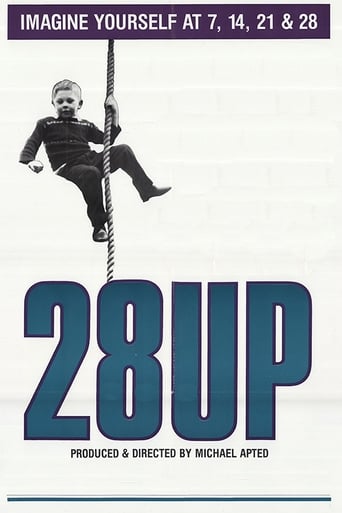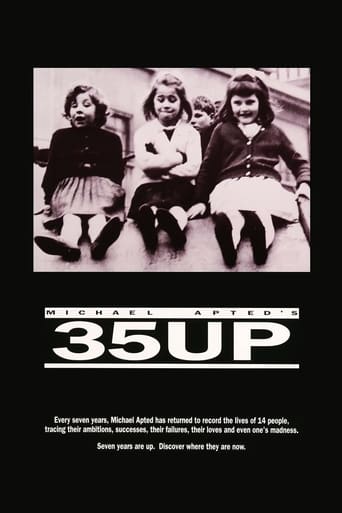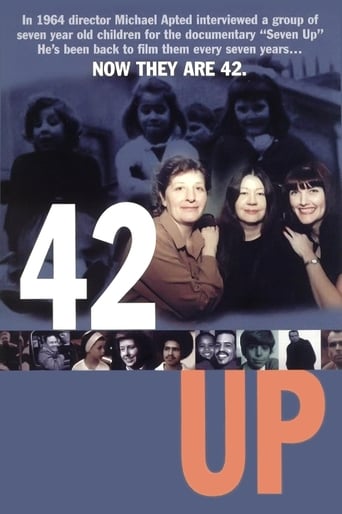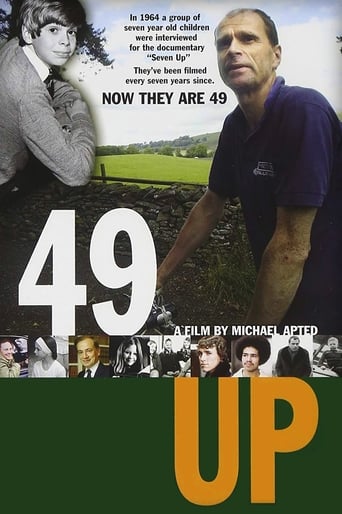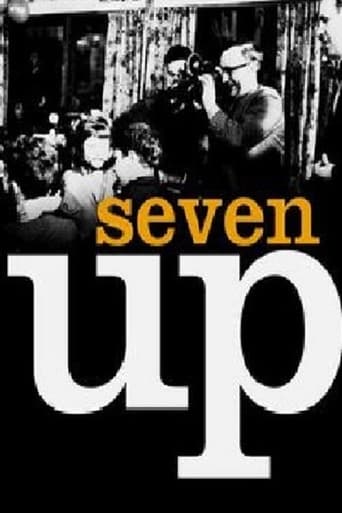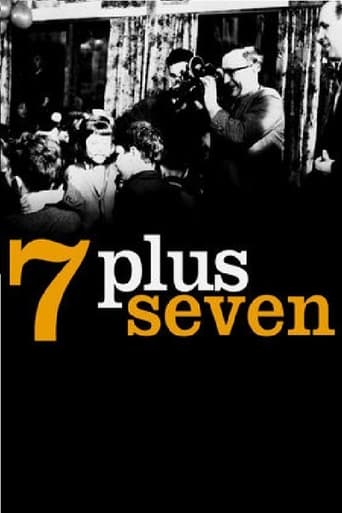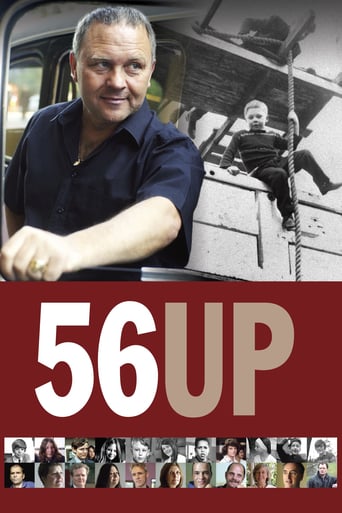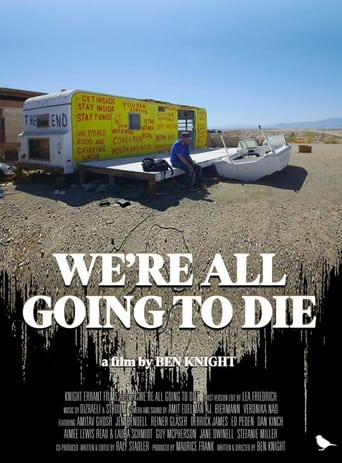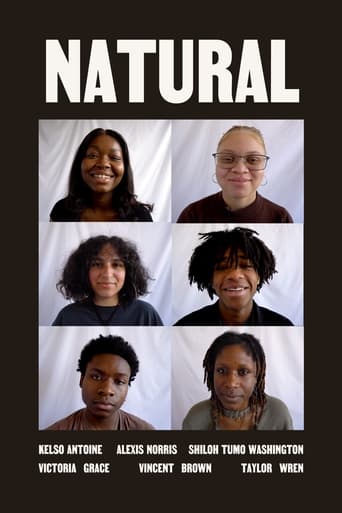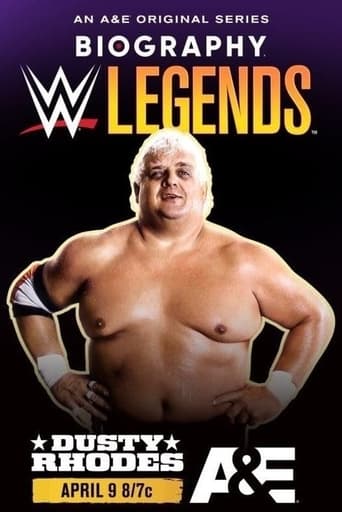21 Up (1977)
After another 7 year wait, director Michael Apted revisits the same group of British-born children from Seven Up! and 7 Plus Seven. The subjects are interviewed as to the changes that have occurred in their lives during the last seven years.
Watch Trailer
Free Trial Channels
Cast


Similar titles
Reviews
Best movie ever!
All of these films share one commonality, that being a kind of emotional center that humanizes a cast of monsters.
It's a good bad... and worth a popcorn matinée. While it's easy to lament what could have been...
Actress is magnificent and exudes a hypnotic screen presence in this affecting drama.
The more "Up" episodes I watch, the more I question the validity of its "show me a boy until he's seven" slogan.I was the first to agree with the notion of a certain point of childhood where your becoming as an adult is pretty much sealed. But how depressing life would be if that was true! If our personality is conditioned by social, material, physical and cultural factors, circumstances do have a say, don't they? And maybe the real achievement is to be able to defeat the odds and beat any adversity undermining the path we're building.Take the Yorkshire kid, Nicholas. In my review of the "14 Up" short, I referred to him as a "painfully shy" teenager with the voice of the McLovin actor. I really expected him to grow more timid, isolated... unhappy. Instead, I saw a dashing handsome young man who built quite a lot of confidence and charisma. He studies physics, helps his father in a farm and provides a nice comment about his childhood's "nervous" answer about girls, calling it sensitive, this boy has learned to look at the bright side of life, basically, proving his previous awkwardness to be just a phase.Another surprise came from Jackie, the chubbier girl from the girls' trio. I mean no disrespect but she always struck me as the more 'homely' one and I knew she was going to be married by the time of the 'next' documentary. But I just love how assuming she is and that she always talks about marriage as a source of balance and happiness. Lynn is also married, Sue not yet, but when they are asked various questions about life and marriage, it's Jackie who takes the lion-share of answers, some tough cookie! And when asked if she wished she had the same chances than Suzie, the rich girl, she doesn't even take Suzie's happiness for a fact, and if only she knew how right she was, unfortunately...Indeed, at that part of the documentary, we knew already that Suzie wasn't really happy. She seemed to be the one who had the harder time, despite being that disciplined girl, dancing ballet and born in a rich family. A divorce when she was fourteen made her lose faith about marriage as an institution and a lifestyle and she became a chain smoker. She exposes her personal views without the pretension of holding them as truths, which makes her sadder than cynical. Some achievements though we could see coming. The three posh kids grew up almost as expected, John is the perhaps the most blatant case of a successful education, Cambridge studies and such, and I wasn't the bit surprised when I heard he wanted to be a barrister. On the other hand, Charles was glad his plans didn't go as expected (he didn't make it to Oxford) and seems to have gotten rid of this "rich kid" look... if Charles is the one with divorced parents (I'm still not sure about some names). Charles' so called failure was a nice twist on the previous episode where the three kids were exactly in the schools they expected Life can derail your plans and that's how it teaches you the best lessons. But as Charles or John (or was it Andrew) pointed out: the merit of an education is less to program you for success than to guarantee a safety net, just like the protection of your parents in case you fail. As usual, the documentary doesn't even need to rely on a particular editing, each layer of life's complexity is covered by one of the protagonists. Three portraits were particularly riveting: Bruce, the missionary kid, always extremely mature and convinced he had to find himself before finding the right girl. His sentiment echoed what someone said about money, it's not about needing something but being aware of what you miss in priority. There was also Simon, who I expected to grow a bit bigger, like the Muhammad Ali he referred to, it was sad to see him working in an average blue-collar job, but he knew he still had to figure out what to do in his future, but he wasn't set-up, unlike his childhood friend Paul who had emigrated to Australia.Maybe Simon indirectly highlighted the merit of education, it gives you options. But then you have Little Tony who brings the counter-argument. He's always dreamed to become a jockey, he was a stable boy, made it as a jockey for a brief time then became a cab driver. His small stature doesn't bother him and at least, he's moving forward and makes end meet. He's one of these "instantly recognizable" faces of the program and I just love how confident and optimistic he stays.Now, it would be impossible to cover all the documentary in one review, especially since this one is much longer (surely at 21 we have more things to say). And the insights from Neil and Peter were also relevant, Neil was kept for the end probably because most of his statements worked in a conclusive way and leaves many doors open for the next episode. As for Andrew, he gives one of most memorable answers when he says his dream is to leave a mark in this world, maybe that says a lot about his age. At 21, we start to question the value of our life and no matter how different our challenges are, we all try to make life valuable.Watching him talking about dreams, maybe Apted was thinking at that moment, "well, I know, I'm leaving that documentary for posterity". It is a fantastic work and it says a lot that the film featured a reunion (unlike the "teen" episode) maybe because they were finally aware they went on board on a very special program and they were interested to have other insights and perspectives... just like us.
I hate to say it, because this series is so highly regarded, but I remain rather ambivalent. Certain characters are emerging as people whose futures I'm curious about: John the douchebag, Suzi the bored little rich girl, Tony the cabbie, Neil the squatter. Others I'm less curious about, although Apted often spends unreasonably long stretches of time talking to them and eliciting little of interest. Oddly, it's not the use of clips from the prior films that inflate the running time as much as these long-winded interviews. This installment does get a leg up in the sense that a larger picture is being drawn, we can see more of a development through these peoples' lives. But there still isn't a ton of compelling material, nor much in the way of unexpected sociological observations. It's all pretty much what you'd expect. I considered bailing out of the series here, but I'll give it one more chance to win me over. I do consider age 28 to be an interesting time in my life, maybe it will be in theirs as well.
The 'Up Series' represents one of the most fascinating and unusual uses of film in cinema history - a documentary life-long chronicle of the lives of 14 people starting at 7 years old, revisiting them every seven years through age 49 (so far). While I could quibble, wishing for a bit more depth here and there (especially with the women, where there's a bit too much emphasis on love and marriage at the expense of all else), it's really an astounding, moving, frightening and uplifting document. There's no way to watch this remarkable series of films without reflecting deeply on one's own life, and how you have changed (and stayed the same) over your own lifetime. While Michael Aped deserves every bit of credit he's received for this amazing piece of cultural anthropology, it's important to note this first film, 7 Up,was actually directed by Paul Almond, and Apted was a that point a researcher for the project.
In 21 Up the seven year olds and then the fourteen year olds we saw in previous 'Up' films are now adults, or at least on the cusp of it. Some are married, some are in college (even Oxford), while others are a little more disillusioned or perfectly happy working menial jobs like at a factory. One of the kids wanted to be a horse jockey and he's well on his way. Another, Bruce, who at one time thought he would be a missionary in Africa to help people, became disillusioned and went into another field altogether. And while some get married, they still have words to say about why they are married and how it doesn't change their lives at all.Where we saw the kids in the first Up film become a little more shy and awkward in 7 Plus Seven, this time we see them a little more sure- or perhaps more sure about their uncertainty in life- and Apted focuses on subjects like marriage, careers, ethnic and racial tensions, politics, things covered in the previous segment but without so much emphasis on juxtaposition between clips (not that the flashbacks to previous films aren't useful). The insights are clear and always interesting, and we see how the same kids are still together in this film, or a little more varied (the three boys, for example, do not quite dress or look a like, one clean-cut and the other with long hair).And, ultimately, we get a sense of what the Up series will evolve into: finding about who these people are by tracking what's happened over time and what they think could happen (or might not) in the future. And in 21 Up it's about coming of age, going through those teenage years into something else, or the same thing as they thought they would be at 7. It's never boring, and we want to see what will happen next or how their view has changed with the passing of time and history around them.

